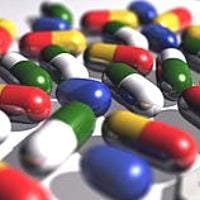(LUXEMBOURG) – The EU’s fight against ‘superbugs’, especially bacteria which have become resistant to antibiotics, has brought little progress to date, according to a new report from the European Court of Auditors.
In their report, the auditors say that while EU action has led to some progress, especially on veterinary issues, there is little evidence that the health burden of antimicrobial resistance has been reduced.
Antimicrobial resistance (AMR) occurs when microbes such as bacteria, viruses, parasites or fungi develop resistance to medicines which previously provided effective treatment.
About 33,000 people die each year in the EU from infections caused by drug-resistant bacteria, also costing the economy 1.5 billion due to extra healthcare costs and productivity losses. Fighting superbugs is complicated and requires an integrated ‘One Health’ approach to human health, animal health and the environment.
The auditors assessed the European Commission’s and EU agencies’ management of key activities and resources to reduce AMR. They examined the Commission’s support for the Member States’ ‘One Health’ response and its contribution to promoting the prudent use of antimicrobials in animals. They also looked at EU support for AMR research.
“Antimicrobial resistance is a serious threat to public health”, said Nikolaos Milionis, the Member of the European Court of Auditors responsible for the report. “While there has been some progress on veterinary issues, the European Commission, together with the Member States, need to further step up their efforts to tackle this growing threat.”
The auditors concluded that EU support to strengthen Member States’ ‘One Health’ approaches to AMR was valuable. In particular, it contributed to better-informed policy decisions and facilitated cooperation and exchange of experience between Member States. However, they say there is potential for further synergies to support the fight against AMR through targeted, cost-effective investments. They also point out gaps in the monitoring of progress and surveillance of healthcare-associated infections, which is likely to slow down actions against AMR. They also consider that scientific data on the occurrence and spread of AMR in the environment remains insufficient.
The auditors found that, while progress was uneven, the use of veterinary antimicrobials had become more prudent in most EU Member States. This is a key factor in fighting AMR. Nevertheless, they say, use of some antimicrobials is still too high. New EU rules for veterinary medicinal products and medicated feed address some of the known weaknesses. However, some issues remain, such as the difficulties Member States face in collecting data and gaps in the monitoring of resistant bacteria in food and animals. For the auditors, the future common agricultural policy provides an opportunity to further strengthen the EU framework for dealing with superbugs.
The EU budget is a major source of funding for investment in AMR research. However, there has not yet been any breakthrough in the development of new classes of antimicrobials. Moreover, the auditors note that the Commission has not undertaken a comprehensive evaluation of its support for research (which accounts for over 99% of EU spending on AMR). Finally, market failures discouraging private-sector research on fighting AMR have not yet been adequately addressed by concrete EU initiatives.
Based on their findings, the auditors make a number of recommendations to improve the EU’s response to AMR, in particular by:
- enhancing support to Member States;
- promoting prudent use of veterinary antimicrobials and better monitoring of AMR; and
- strengthening strategies for boosting AMR research in the EU.








